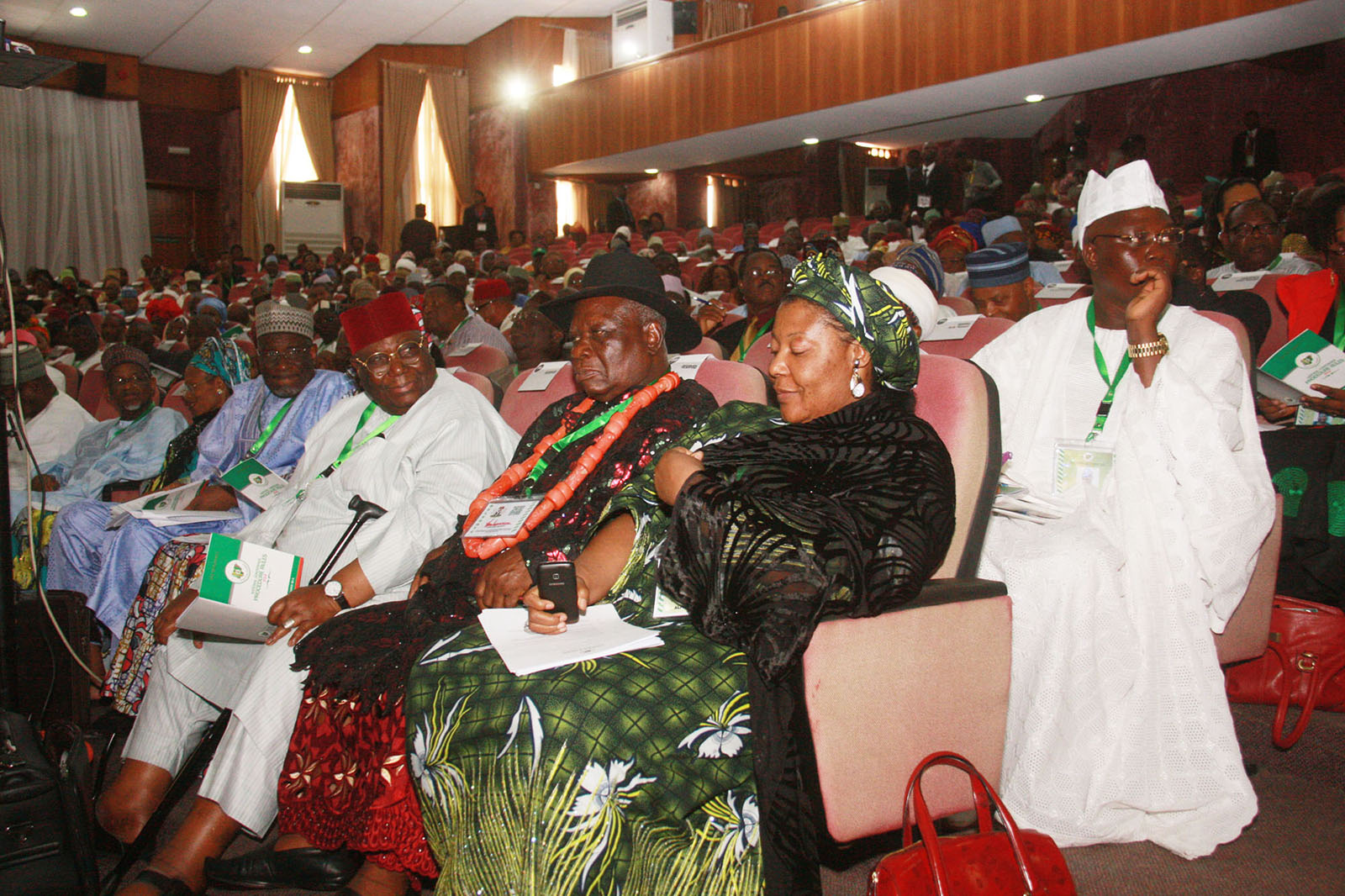In continuation of the plenary session of the National Conference, delegates yesterday considered the report of the Transportation Committee headed by Senator Musa Adede, canvassing for the need for the establishment of a national carrier, dredging of the River Niger as well as linking all airports with a rail network so as to reduce congestion on the roads.
Also, the delegates called for an efficient road and rail networks, explaining that the existing transportation infrastructure in Nigeria comprising roads, railways, ports, airports and pipelines are inadequate in terms of accessibility and inter-operability.
The delegates further said that the poor state of the transportation system in the country had been largely occasioned by the fragmented operational and institutional framework for the inter-modal coordination of the country’s transport modes, hence the need to integrate and coordinate the activities and responsibilities of the different transport modes in the country and harness the various potential contained therein.
According to the Musa Adede-led committee, the new world economic order revolves around efficient transportation and there is practically no invention or innovation from satellites to match boxes, high tech surveillance equipment, ICT to medical equipment and from military armament to perishable cargo that is not deployed or distributed by transportation.
The committee stated that transportation could be efficient when it is integrated and driven by intermodal frameworks, as the sole utilisation of some modes of transportation can become more retrogressive.
Accordingly, the committee said in its report that, “The prevalent accidents, loss of lives and man hours, added cost to commodities, damage and attendant cost of repairs to the roads by heavy duty trucks would have been avoided if the inter modal system was operational.
“Our development would have been more sustainable and less foreign procurement of the production of the rail tracks and rolling stock are linked to the Ajaokuta, Jos, Katsina, Oshogbo and Delta Steel Plants.
“Due to the intensive use of infrastructure, the transportation sector is an important component of the economy impacting on economic development and on the welfare of populations. A relation between the quantity and quality of transportation infrastructure and the level of economic development is apparent,” the committee stated.
The committee further said, “When transportation systems are efficient, they provide economic and social opportunities and benefits that result in positive multiplier effects such as better accessibility to markets, employment and additional investments. When transportation systems are deficient in terms of capacity or reliability, they can have diverse affects on the overall economic well being of any given society.
“The transportation sector represents a significant proportion of Nigeria’s key infrastructure. It facilitates the links between spatially located facilities and acts as mechanism for maintaining social contact. Transportation affects the totality of a country’s activity- its people, economy, environment, and even its politics.
“An ineffective transport system can frustrate the efforts of government and the people, while an adequate transport system can impact positively on national development and enhance the standard of living of the people.
“A well planned and developed inter-modal transport system is an essential infrastructure requirement for socio-economic development. Transport goes beyond facilitating the movement of people and goods but also contributes to the regional and national development creating positive multiplier effect on all sectors of economic activities, which will lead to job creation and poverty alleviation.
“It is an economic-given that our transportation sector if properly developed and financed through innovative financing mechanism that would be inclusive of NSIA (Nigerian Sovereign Investment Authority), Subsidy Reinvestment Programme (SURE-P), Assets Management Company of Nigeria (AMCON), Natural Resources Fund, Special Intervention Funds and inputs from local investors and financiers would be required to fund the trillions of naira needed to transform the transportation sector.”
“In addition, privately driven project-based financing would also be needed to support the huge burden of budget-dependent infrastructure development,” the report said.
It was therefore in this regard that all the delegates that commented on the report of the committee laid emphasis on the need for Nigeria to have a national carrier, weight bridges and the dredging of River Niger and all necessary rivers for easy accessibility.
In his contribution, Raymond Dokpesi advocated for the use of two percent of federal revenue for the sustenance and maintenance of the transportation policy.
Dokpesi, while speaking on the state of the country’s transport sector, blamed lack of continuity in government policies for the poor transport infrastructure in the country.
He said, “It was the government of (Alhaji) Shehu Shagari that proposed the construction of standard railway gauge at an estimated cost of N30 billion to be implemented at the rate of N1.5billion a year over 20 years. The administration of General Muhammed Buhari cancelled the project when he came to power on the grounds that there were no funds to implement it”.
Former Minister, Dalhatu Bashier from Jigawa State called for the continued maintenance of the already dredged Rivers, stating that he earlier this year travelled from Baro in Niger State to Onitsha in Anambra State to supervise the dredging of the River Niger.
However, another delegate, Obi Anoliefo disagreed that River Niger had been dredged, stating that some people are already planning to play a football match inside the River Niger to prove that it had not been dredged.







